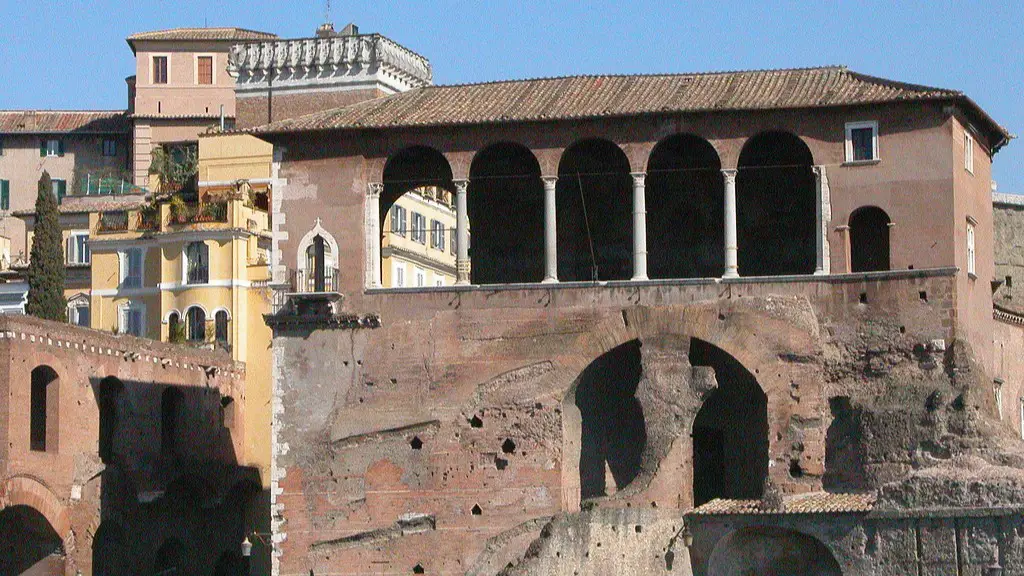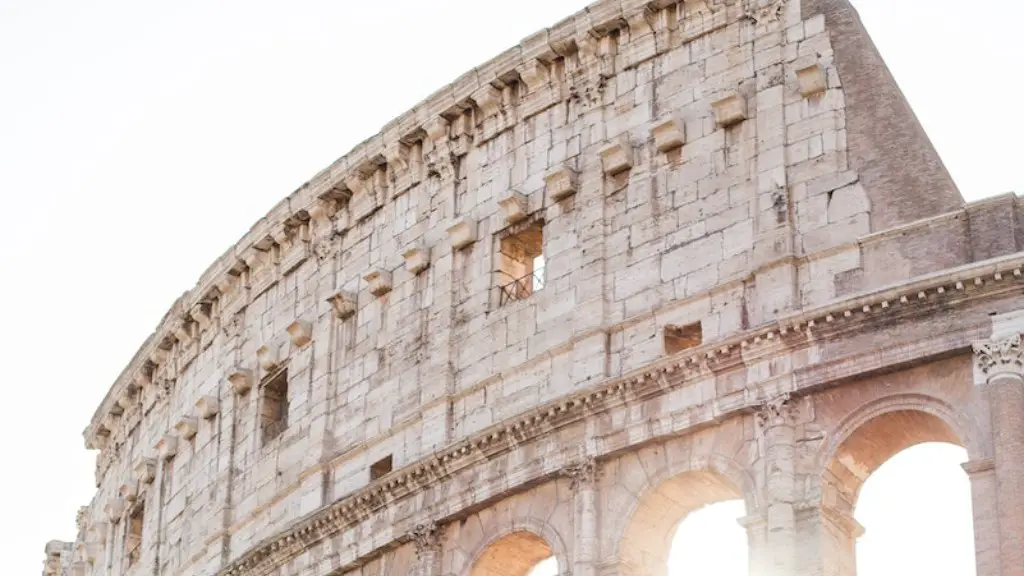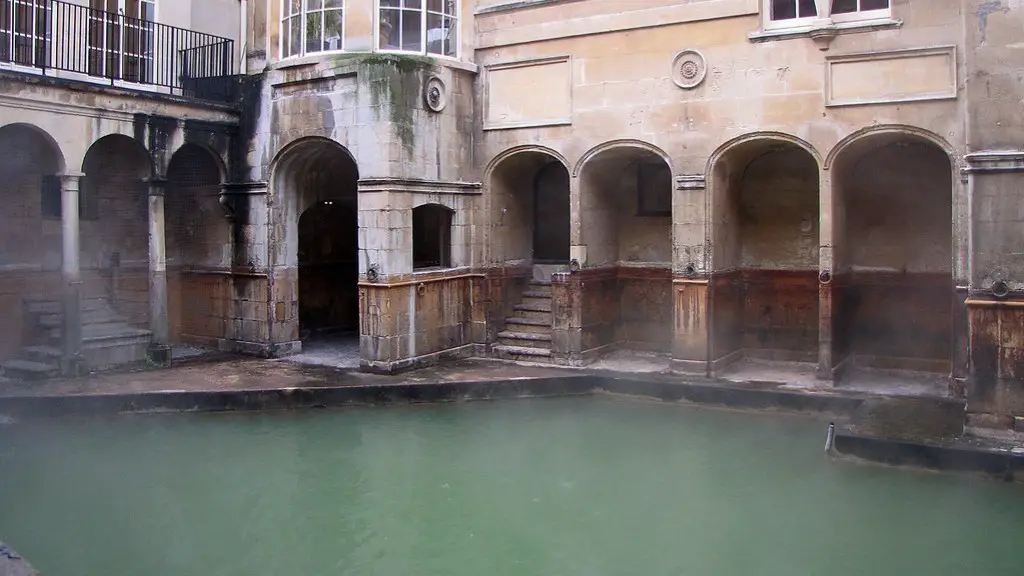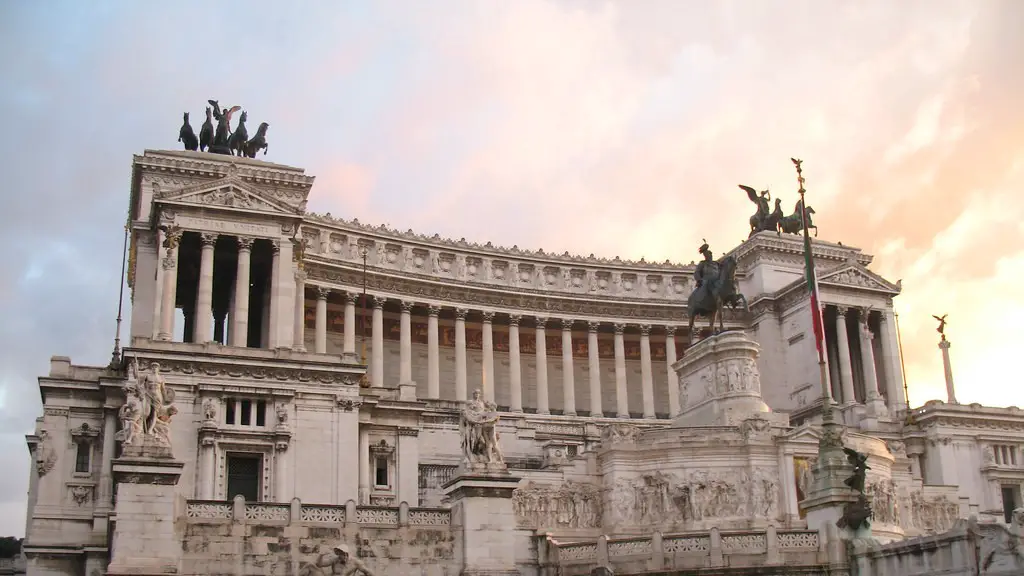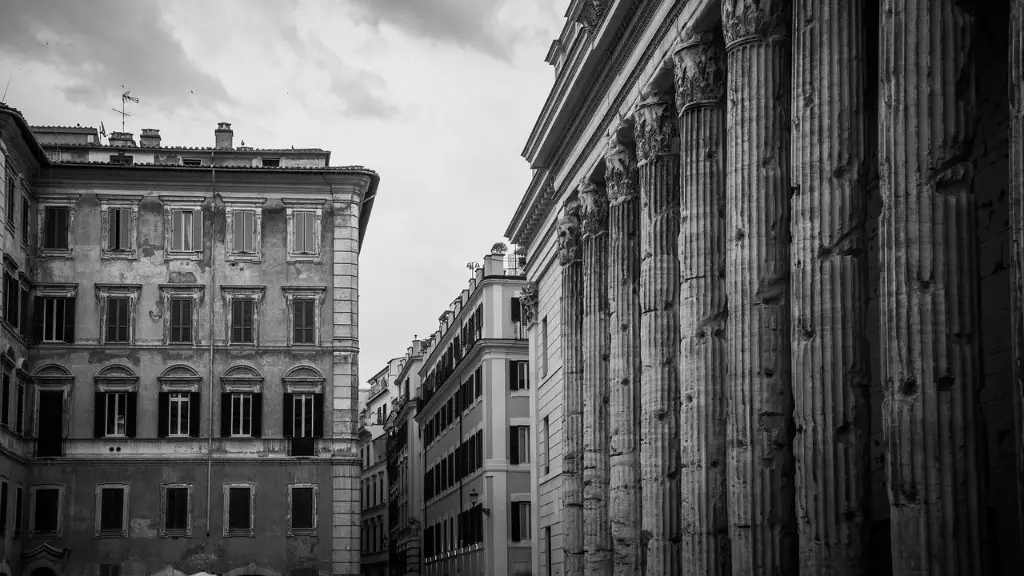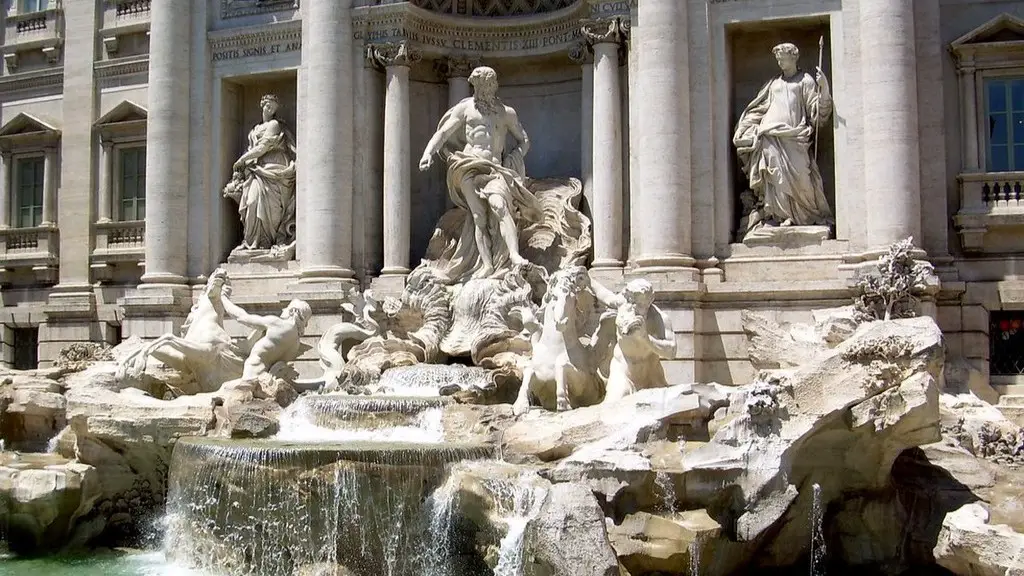A Legacy of Contributions
Ancient Rome was an advanced civilization that left an indelible imprint on the world. The legacy of Ancient Rome is remarkably influential, spanning artifacts of art, architecture, engineering, law, language, philosophy, literature, and more. While much of the Roman Empire was destroyed several centuries ago, its marks can be seen lived on today in various aspects of our lives.
One of the most recognizable legacies of Ancient Rome is its remarkable architecture and engineering. From aqueducts to roads, and from stadiums to impressive buildings, these structures remain as a testament to the ingenuity of Ancient Rome. The earliest aqueducts, for example, were built in Rome as early as 312 BCE, and served for centuries to transport water to the city. Similarly, the roads of Rome were constructed to be efficiently navigable, and could be used for trade or military purposes.
The legal system of Ancient Rome is equally remarkable. This system, called the Corpus Juris Civilis, was created in the 6th century CE and provided a guide for how the legal system should function. This system of jurisprudence has stood the test of time, and has served as the foundation of legal systems across Europe and North America.
Additionally, Ancient Rome provided many linguistic contributions. The Latin language was the mother tongue of the Roman Empire and was a major contributor to the Romance languages (Italian, Spanish, French, and more). Because of their legacy, Latin roots can still be seen in many words we use today.
Ancient Rome’s contributions to the world are equally impressive in the realm of philosophy and literature. The literature and philosophical musings of Roman authors like Horace, Ovid, and Virgil have been studied and admired for centuries, and still serve as the inspiration for countless books, films, and works of art. In particular, the poetry of Horace and the Aeneid, written by Virgil, have become cornerstones of the Western canon.
The Roman Empire, without a doubt, has left a significant mark on the world. Its engineering and architecture stand as testaments to the progress and power of the Roman people, while its legal system and language have significantly impacted the world even centuries later. This is not to mention the incredible contributions in philosophy and literature that have shaped our current understanding of the world.
Significance in Art and Culture
Art was an important part of Ancient Rome, and the legacy of Roman art remains significant today. The influence of Roman sculpture and murals, for example, can still be seen in churches and monuments of modern Europe. Many of the great European cities and monuments, such as the Forum and Colosseum, are inspired by the designs of Ancient Rome.
The culture of Ancient Rome also left an indelible mark on the world. Even though Ancient Rome was a culture focused on war and conquest, it was also known for its premier chariot racing and gladiator contests, its theaters and literature, and its festivals and feasts. All of these elements resonated through the centuries and can be seen in the culture of modern Europe.
Moreover, the legacy of Ancient Rome’s culture is also evident in the customs of other civilizations. Throughout the course of history, various civilizations have adopted Roman customs and incorporated them into their own cultures. This is especially true for the Cathari, a religious cult that essentially adopted the Roman legal code as its own. The Cathari is a testament to the reach and influence of Roman culture beyond its own borders.
In sum, the legacy of Ancient Rome in art, culture, and language continues to reverberate today. On one hand, its artistic contributions can still be felt in architecture, sculpture, and painting around the world. On the other hand, its culture is still alive in the law systems and customs of other civilizations. The power of Ancient Rome still persists.
The Effects of Rome’s Expansion
Ancient Rome was not only unique and powerful, but it was also expansive. The Roman Empire spread its influence to the northern and eastern corners of the Mediterranean. This expansion brought a cultural, political, and economic shift to the areas it influenced, affecting the lives of countless people.
In terms of culture, Ancient Rome’s expansion brought an influx of new ideas and customs. These customs included a new language, Latin, as well as new religions. Furthermore, Ancient Rome greatly impacted the local religions, incorporating aspects of Ancient Greek and Macedonian belief systems into its own. Roman gods and goddesses can still be seen in the pantheon of many modern religions, such as Christianity and Islam.
Politically, Ancient Rome’s expansion was an imperial conquest of sorts. It brought Roman law, government, and governance to the lands under its domain. For example, the concept of a “pax romana” was implemented in areas under its rule, bringing a period of peace with it. Additionally, Rome’s influence brought the notions of democracy and individual rights. Many of the political systems we have in place around the world today are based on these Roman concepts.
Just as significant was Rome’s economic influence. Ancient Rome developed a coherent monetary and taxation system, which included the use of trade and currency, the introduction of a currency backed by the State, and the taxation of the provinces, among other tactics. This had a lasting impact on other civilizations and empires, providing them with a tangible model for their own economic systems.
In conclusion, Ancient Rome’s expansion brought immense changes to the areas it conquered. Its cultural, political, and economic impact is still felt around the world today. Its economic and legal systems, in particular, have been adopted and adapted by many countries around the world. The legacy of Ancient Rome is truly remarkable.
The Enduring Legacy of the Roman Empire
The monumental legacy of Ancient Rome continues to astonish the world today. While some sections of the Roman Empire have been destroyed or decayed, much of it remains standing as a testament to its strong foundation. In some cases, these sections of the empire are even used today. The Colosseum, for example, continues to hold concerts and sporting events, bringing in thousands of visitors each year.
What makes the legacy of Rome even more powerful is its continued relevance. For example, the works of Roman authors are still studied today and have provided the basis for many of the Western world’s greatest works of literature. Similarly, many of the laws and legal systems of Ancient Rome have been adapted and adopted by modern nations.
The legacy of Ancient Rome is also marked by its presence in popular culture. Films, books, and video games that advance and portray the stories of Ancient Rome have been extremely successful. In addition, many restaurants, statues, and monuments have been built to commemorate the Roman Empire.
The importance of Ancient Rome and its legacy is difficult to overstate. Not only was it an important and advanced civilization, but its influence is still felt today. The works of its authors, the engineering feats of its architects, and the groundbreaking legal system all serve as reminders of its power. The legacy of Ancient Rome is truly astonishing.
The Importance of Continuing the Legacy
The legacy of Ancient Rome is an invaluable part of our collective history and should be preserved for future generations. This can be accomplished through various initiatives, such as preservation projects and educational initiatives.
Preservation projects are perhaps the best way to ensure the continuation of Rome’s legacy. Organizations such as the World Monuments Fund are dedicated to preserving the places and artifacts of the Roman Empire. Similarly, UNESCO has declared the Colosseum a World Heritage Site and has initiated several projects to ensure its preservation.
Educational initiatives are also important in continuing the legacy. Many universities and schools offer courses on the culture and history of Ancient Rome. In addition, many educational organizations, such as the American Classical League, have been formed to promote the study and understanding of Roman culture. Furthermore, there are numerous museums and excursions that provide visitors with a glimpse into the past of Ancient Rome.
It is critical that we continue to honor and preserve the legacy of Ancient Rome. Though the Roman Empire has been gone for centuries, its imprint can still be seen today. Through preservation and education, we can ensure that this legacy will live on for many years to come.
The Value of the Legacy
The legacy of Ancient Rome is a valuable and necessary part of our global understanding. Its contributions in architecture, engineering, law, language, philosophy, and literature have greatly impacted our current world. For many nations and civilizations, Ancient Rome serves as a reminder of their past and a guide for their present.
But the legacy of Rome is more than just a lesson in history. It is an example of what humans can achieve when they come together in pursuit of a common goal. Ancient Rome was the product of numerous individuals working together to develop an advanced civilization. In terms of infrastructure, engineering, law, and language, Ancient Rome stands as an example of the power of collective effort.
Moreover, the legacy of Ancient Rome is also a reminder that our current world is shaped by our past. We should look back on our history and use it for guidance for our future. Ancient Rome reminds us that our collective endeavours can have immense and lasting impacts far beyond our own lifetimes.
The legacy of Ancient Rome serves as a guide and an example for us all. The contributions of this remarkable civilization have shaped our current world, and its lessons andreminders are just as relevant today as they were centuries ago.
